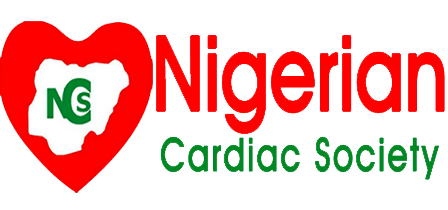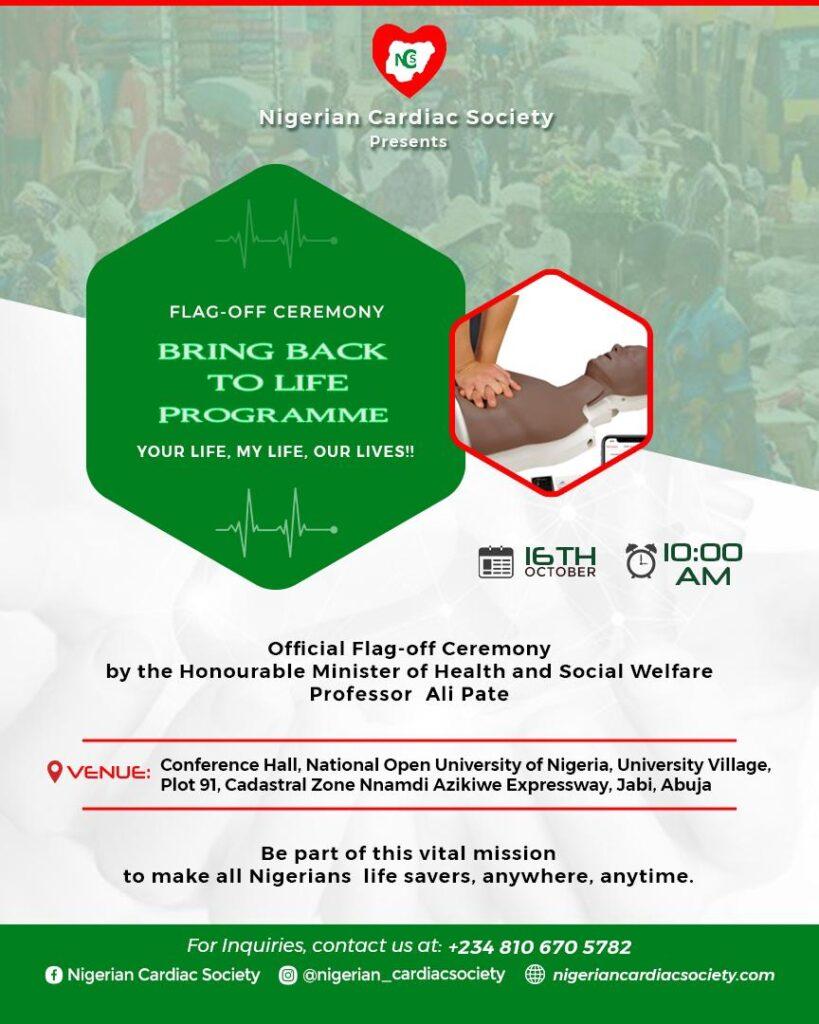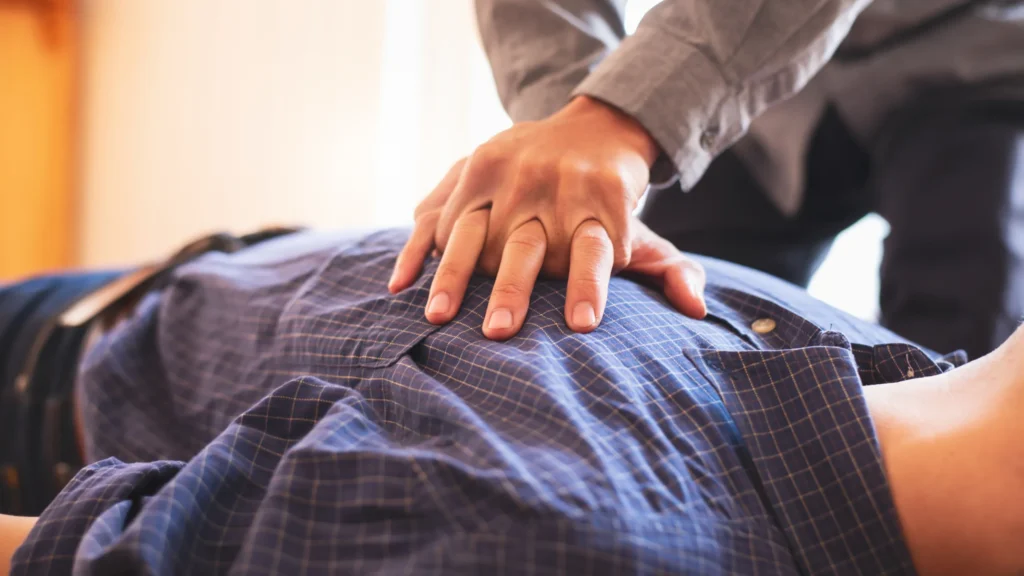Bring Back to Life
About Bring Back To Life
Standard Operation Procedure (SOP) for the Bring Back to Life Programme
1. Master Trainers
a. Previous certification of BLS and Advanced Life Support Training
b. Must have been Part of the Bring Back to Life Committee of NCS
c. Must be a registered Member of the Nigerian Cardiac Society with evidence of current annual due
d. Either a Medical Doctor, Nurse, Pharmacist, Physiotherapist, Medical Lab scientist, Imaging Scientist
e. Have current practicing License of any professional body he or she belongs to
f. Must Participate in Two-day validation of the NCS BBL curriculum and actively involved in the three months roll out training
2. BBL (BLS Provider)
a. Must be a registered hospital of Clinic or Department of Cardiology of a Teaching Hospital or Federal Medical Centre. A Private Health Facility must provide evidence of registration with CAC and the necessary regulatory body within the state of practice.
b. A Health-related NGO must show evidence of CAC Registration
c. A Health Continuous Professional Development Company (CPD) company must show evidence of Registration with the health Professional body and CAC registration
d. Pay Registration Fee of 250,000-naira Registration renewal every 2 years at a cost to be determined by NCS
e. Commit to supporting at least two individuals with the requisite qualification to be trained as BBL trainers.
3. NCS BBL Trainer
a. All master trainers can become trainers if their institution so desires
b. To be eligible, a trainer must be either a Medical Doctor, Nurse, Pharmacist, Physiotherapist, Medical Lab scientist, Imaging Scientist
c. Have current license issued by professional regulatory where the prospective applicant belongs to
d. Must pay a training fee of 300,000 which covers training materials including a hard copy of NCS BBL training manual, BBL branded Mannequin, A Set of customized training slides, tuition fee for a three months hybrid (face to face and distance training module), feeding for the two-day face to face training.
e. All BBL trainers will be re-certified every two years at the cost to be determined by NCS from time to time
f. A two-day face to face training to led by at least two master trainers. Class must not be ore than 20 per cohort. Two-day physical training is followed by a three months period within which a prospective trainer is expected to have attended at least 20 training sessions either virtually or physically.
g. Certification is only done after the three months period provided that he or she observes the minimum number of training sessions.
h. A certified trainer will be given a unique identification number and his details included in NCS website.
4. BBL Trainings: A certified trainer, attached to accredited institution can advertise for training as many times as they can cope.
a. Each class will not be more than 20 per trainer.
b. Training should last for between 6 to 8 hours according to the Time-table in the manual
c. Training can only be carried out using the sets of slides provided to the trainer at certification
d. All certificates will bear the training institution and NCS logo and the cost of issuing such certificate will be two thousand naira (2,000). Only a certificate endorsed by NCS is admissible for employment, etc
e. Training cost should be forty thousand naira (40,000) inclusive of the cost of certificate.
f. Eligibility for training: All Nigerians 16 years and above.
g. Training videos and manuals in three major Nigerian Languages will be available by the 2nd Quarter of next year
5. Public Access Defibrillators
a. Places that require public Access Defibrillators
i. All Airports
ii. All markets/Large shopping malls
iii. All Government officers with more than 500 staff and human traffic of >5000 Weekly
iv. All Conference Centers with 500 and More sitting Capacity.
b. Installation:
i. Only Certified AEDs by the BBL committee will be installed according to specified standards
ii. The AEDs will be installed on a platform at least xxx cm from the ground with a transparent material
iii. It has to be a point that easily accessible preferable at the main entrance of the building. There won’t be an obstruction towards the point.
c. Training: Training is recommended for all members of the establishment where the AEDs will be mounted. However, installation will not carried out unless at least 10 members of staff including security men, receptionists and front deskofficers are not trained. In addition to the Cost of AEDs, a training cost of notless than 400 thousand naira which will cover BBL training for at least 10 officers. Such establishments and all other ones are advised to insist on BBL training for any security company they want to engage.
d. Maintenance:
i. Every AED mounted will have a unique identification number and details of it including make, last maintenance, any use uploaded.
ii. Each AEDs will be overseen by a Public Access Defibrillators Supervisors who should be a member of NCS and who should have received adequate training for it. Training and retraining of PAD Supervisors should be taking place during NCS conferences.
iii. Yearly maintenance on September 29th should be reported to the coordinating Centre
iv. All cases of malfunctioning will be reported by the Supervisor.
e. Drills: Yearly drills will be performed every World Heart Day, on September 29th. Maintenance log should also be documented not latter than 24 hours after the event.
Total People
in our city
in our city
0
K
Square kilometres
region covers
region covers
0
K
Private & Public
Health Centers
Health Centers
0
%
Grants
0
+
Nigeria Cardiac Society:
Empowering Nigerians to Take Control of Their Heart Health
Latest News & Events
The news about recent activities for needed peoples claimed.





